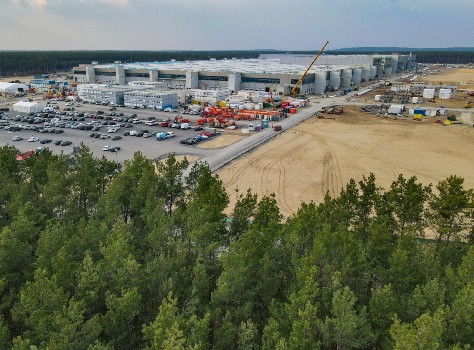France’s government presented on Friday a new set of penalties for polluting cars circulating on the country’s roads.
The new fees are part of France's “bonus-malus écologique” which is an environmental tax system in France that sees drivers taxed more heavily according to how much CO2 pollution their vehicle emits.
As of January 1st 2019, SUV's (Sport utility vehicles), big sedans and other large cars will be slapped with penalties of between €50 to €10,500 depending on their polluting level, fines that in fact already exist.
The difference is that the emission threshold for cars will be lowered by 3 grams, from 120 to 117 grams of CO2 released per kilometer.
That means the number of cars penalized is likely to rise from the current 16.5 percent to 27.6 percent in 2019, unless there’s a considerable switchover to less polluting cars by the French public.
The average penalty fee will also almost triple from €50 to €145.
Vehicles that release 140g of CO2 per km will see owners having to cough up €1,050 in their next vehicle registration, €5,113 if it's 154g/km and €10,500 if it's 185g/km and over.

For non-polluting vehicles, namely electric cars, the bonus system for 2019 has not yet been announced.
The measure – announced on Friday morning by Ecological Transition Minister Nicolas Hulot and Transport Minister Élisabeth Borne – is part of a draft law on transport and mobility.
“The new penalties are in line with technological improvements, and have been drafted with the approval of the entire industry,” said the Transport Minister.
“It will affect anyone who decides to buy a vehicle that’s more polluting than average.”
French authorities are planning a further reduction of the emissions threshold in the years to come, around 3 grams every year.
The aim is to make sure France’s fleet of approximately 40 million vehicles becomes progressively more and more environmentally friendly.
Which cars are most affected?
German carmaker Mercedes will continue to bear the brunt of France’s new eco taxes.
Over the first six months of 2018, its customers have already spent a total of €27.7 million for the privilege of driving one of their bigger polluting vehicle models.
Audi drivers also coughed up €21.3 million in eco taxes, Volkswagen € 19.7 million, BMW € 18.5 million and Porsche €17.5 million.
All in all France’s government has already pulled in €172 million in eco taxes.
By contrast Renault drivers benefited from €19.6 million in bonuses, thanks in particular to the French carmaker’s electric Zoe car.
Financial bonus rewards for green eco cars are believed to only benefit 1.3 percent of the car market at present.
It remains to be seen how the French government will change the bonus system for 2019, although the 2018 regulations will remain in force until the end of the year one way or another.
These see anyone who buys a new electric vehicle get up to €6,000 docked off the price when they register the vehicle and between €500 and €2,000 when going from a more polluting diesel or petrol vehicle to an eco one.
Find out if you’re eligible for an eco discount on your vehicle here.



 Please whitelist us to continue reading.
Please whitelist us to continue reading.
Just another money making scam using pollution as an excuse. Pollution and terrorism have become Government bywords for making money.